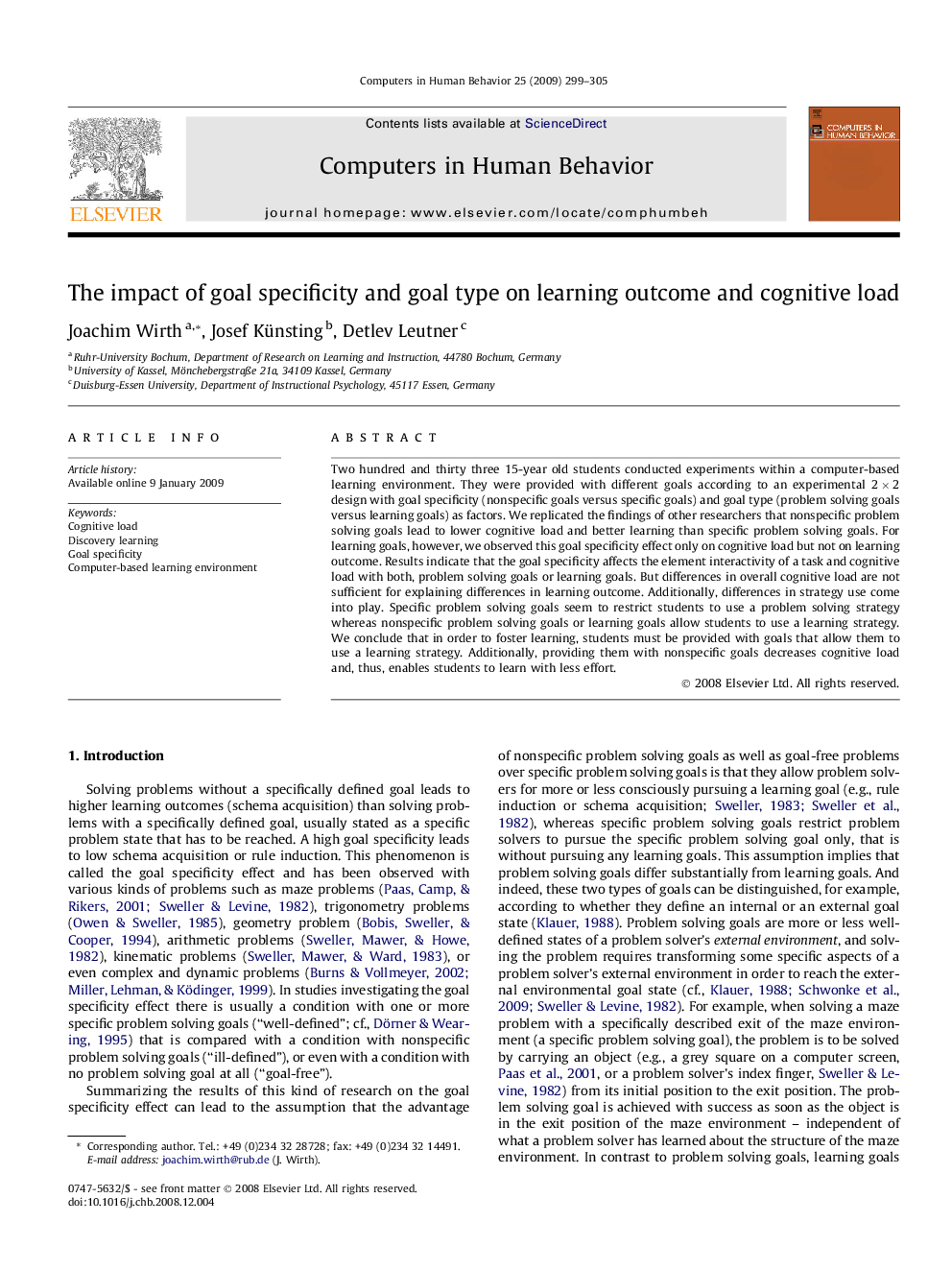| کد مقاله | کد نشریه | سال انتشار | مقاله انگلیسی | نسخه تمام متن |
|---|---|---|---|---|
| 352254 | 618495 | 2009 | 7 صفحه PDF | دانلود رایگان |

Two hundred and thirty three 15-year old students conducted experiments within a computer-based learning environment. They were provided with different goals according to an experimental 2 × 2 design with goal specificity (nonspecific goals versus specific goals) and goal type (problem solving goals versus learning goals) as factors. We replicated the findings of other researchers that nonspecific problem solving goals lead to lower cognitive load and better learning than specific problem solving goals. For learning goals, however, we observed this goal specificity effect only on cognitive load but not on learning outcome. Results indicate that the goal specificity affects the element interactivity of a task and cognitive load with both, problem solving goals or learning goals. But differences in overall cognitive load are not sufficient for explaining differences in learning outcome. Additionally, differences in strategy use come into play. Specific problem solving goals seem to restrict students to use a problem solving strategy whereas nonspecific problem solving goals or learning goals allow students to use a learning strategy. We conclude that in order to foster learning, students must be provided with goals that allow them to use a learning strategy. Additionally, providing them with nonspecific goals decreases cognitive load and, thus, enables students to learn with less effort.
Journal: Computers in Human Behavior - Volume 25, Issue 2, March 2009, Pages 299–305